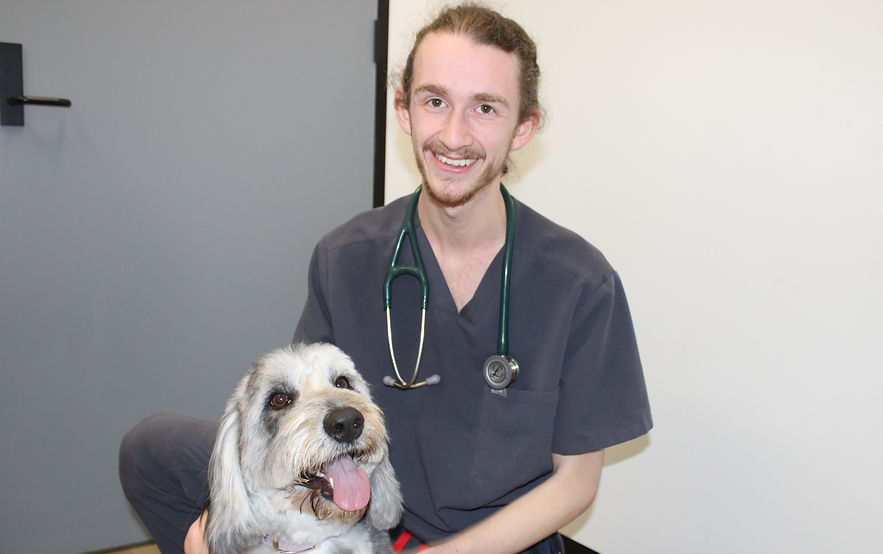
Information for Pet Owners
Macarthur's only 24/7 veterinary emergency hospital.
If your pet needs help, follow these steps:

Stay Calm & Safe
Assess the situation and make sure both you and your pet are out of harm’s way. If your pet is in a dangerous spot, such as a busy road or near hazards, carefully move them to safety. Try to remain calm, as pets can sense your emotions.
Sick or injured animals may act unpredictably and could bite or scratch out of pain. Go slowly, minimise hanlding and use a blanket or muzzle if needed.

Call your Nearest Open Vet
Seek professional veterinary advice as soon as possible. Explain exactly what happened and describe your pet’s symptoms, they may guide you on what to do before you arrive, including basic first aid.
If safe to do so and you are capable, provide basic first aid to your pet. This may include applying gentle pressure to control bleeding.

Remember Important Information
-
Medications your pet is taking
-
Packaging of any toxins or substances they may have ingested
-
Details of incident, including approximate time and any photos or videos
-
Medical records or notes if your Regular Vet has recently treated your pet
This will help the team treating your pet potentially make decisions faster and aid in positive outcomes.
What happens when my pet arrives in an emergency?
We understand that emergencies can be overwhelming and emotional, that’s why we’re committed to keeping you informed and supported every step of the way. At VECA, we operate much like a human emergency hospital, ensuring the sickest patients are seen first. Here’s what you can expect when you arrive:
1

Check in at VECA
Park out the front & check in with reception team. Let them know your pet's name & what's wrong.
2

Triage
A triage nurse will assess your pet & assign priority. The sickest pets are seen first, not in order of arrival.
3

Treatment & next steps
A vet will discuss treatment options & associated costs with you, they may be hospitalised or discharged.
Pets are seen based on urgency, not arrival order.
Understanding Veterinary Fees

No Government Subsidies
Up to 70% of human healthcare costs are subsidised by the government. Veterinary care is not government funded.

No Medicare for Pets
Human healthcare is heavily subsidised by medicare. This makes veterinary costs seem more expensive.

Staffing Costs
At VECA, we have a highly experienced team of vets, nurses and support staff available for your pets any day or time.

Working with animals
Many procedures with animals often require extra staff, sedation and/or anaesthesia to keep pets & staff safe and comfortable.

Hospital Overheads
Maintaining an around the clock purpose built Veterinary Hospital including water, electricity, gas, essential equipment & consumables.

Medication
Includes the safe handling, storage, prescription and dispensing of veterinary drugs and medications.
